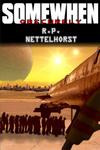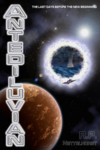The universe does not look right. That may seem like a strange thing to say, given that cosmologists have very little standard for comparison. How do we know what the universe is supposed to look like? Nevertheless, over the years we have developed a strong intuition for what counts as “natural”—and the universe we see does not qualify.
Make no mistake: cosmologists have put together an incredibly successful picture of what the universe is made of and how it has evolved. Some 14 billion years ago the cosmos was hotter and denser than the interior of a star, and since then it has been cooling off and thinning out as the fabric of space expands. This picture accounts for just about every observation we have made, but a number of unusual features, especially in the early universe, suggest that there is more to the story than we understand.
Among the unnatural aspects of the universe, one stands out: time asymmetry. The microscopic laws of physics that underlie the behavior of the universe do not distinguish between past and future, yet the early universe—hot, dense, homogeneous—is completely different from today’s—cool, dilute, lumpy. The universe started off orderly and has been getting increasingly disorderly ever since. The asymmetry of time, the arrow that points from past to future, plays an unmistakable role in our everyday lives: it accounts for why we cannot turn an omelet into an egg, why ice cubes never spontaneously unmelt in a glass of water, and why we remember the past but not the future. And the origin of the asymmetry we experience can be traced all the way back to the orderliness of the universe near the big bang. Every time you break an egg, you are doing observational cosmology.
The arrow of time is arguably the most blatant feature of the universe that cosmologists are currently at an utter loss to explain. Increasingly, however, this puzzle about the universe we observe hints at the existence of a much larger spacetime we do not observe. It adds support to the notion that we are part of a multiverse whose dynamics help to explain the seemingly unnatural features of our local vicinity....
It's a long article, but very interesting.





1 comment:
Interesting article. I have a problem with explanations that postulate unseen and not-possibly-seen infinities. Why not just say God did it? That would be as scientific. On the other hand if twentieth century physics taught us anything it's that we live in a far stranger place than we can possibly imagine. It's not a good idea to discount a theory just because it seems too strange.
Post a Comment